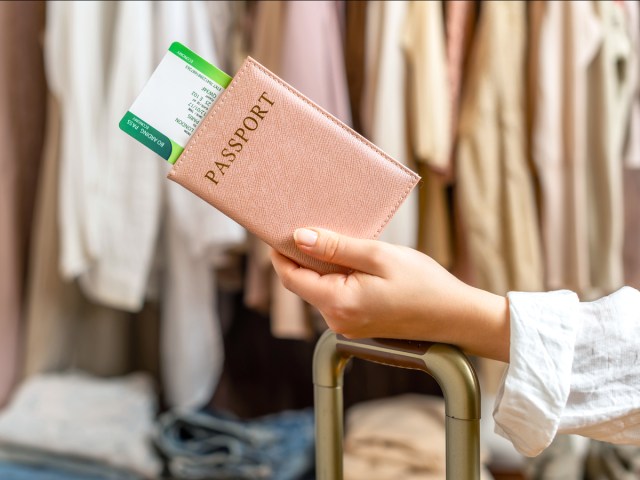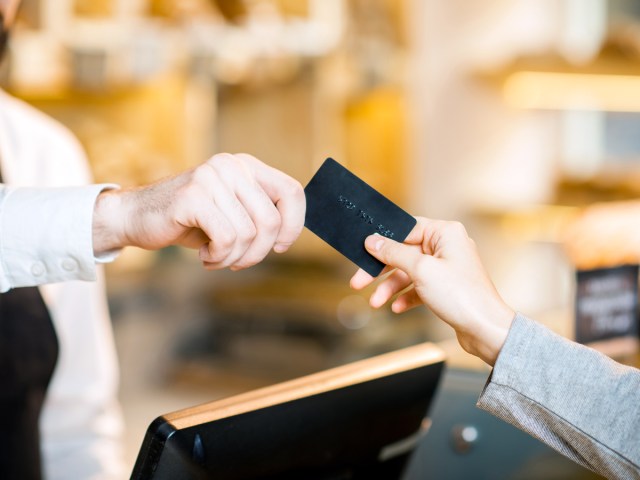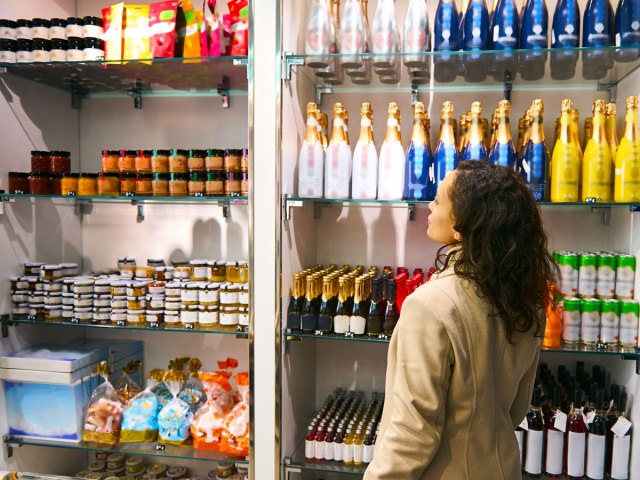Duty-free shopping can be an attractive option for international travelers looking to stock up on tax-free goods while navigating between countries. These retail institutions are commonly found in airports, aboard cruise ships, near border crossings, and other similar locations. But while purchases made at duty-free stores are always tax-free, that doesn’t necessarily mean the items will end up being that much cheaper. Sometimes, there are hidden fees and various regulations that inflate the true cost of the item. If you’re jetting off on an international trip soon and planning to shop at duty-free, keep reading to learn more about just how much you can expect to save.
What Is Duty-Free?

The term “duty” refers to the taxes that are required when bringing a purchase across international borders. Duty-free shops offer customers items like alcohol, jewelry, tobacco, fragrances, and accessories, without having to pay the local sales tax when normally purchasing the item. To purchase items at duty-free, you’ll need to present a valid international boarding pass. For U.S. travelers, you must be leaving the country for a period of at least 48 hours.
The reason these items are untaxed is because duty-free shops are often located in places that fall under multinational jurisdiction, such as airport terminals, with the understanding that the goods will be purchased and then immediately taken back to the traveler’s country of origin. Because of this, duty-free goods aren’t taxed by the municipality where they’re sold, given that they won’t be consumed or used in that country. However, in some cases, they may be subject to tax upon reaching your next destination (more on that below).
Are Duty-Free Shops Actually Cheaper?

Given that each country has different tax rates on goods sold within their borders, the amount you save at duty-free shops varies across the world. Duty-free prices also vary from airport to airport, even within the same country. For example, according to research from the Points Guy, Dubai’s duty-free airport stores were found to have some of the highest prices internationally, so you may be paying more on tax-free alcohol here than you would on taxed alcohol in another country. The same goes for sunglasses in places like Mexico or other sunny locales, where the price of a tax-free pair of designer shades is often far more expensive than sunglasses sold in a cloudier country.
In general, shoppers can expect to save the most on items such as alcohol and tobacco, since local taxes are generally higher on those items. While there are some deals to be found at duty-free, often, the base price for items such as luxury goods and high-end beauty products may be marked up significantly compared to what you’d be able to find at home — so it’s always worth doing a little online research. If you’re curious about the prices to expect on an upcoming trip, you can always use search engines such as Shop Duty Free and Duty Free Americas to see if the savings will be worth it. In some cases, you can even reserve your purchase online ahead of time, saving you time at the airport.
It’s also helpful to consider factors such as favorable currency exchange rates. And if you’re paying by credit card, make sure it doesn’t charge foreign transaction fees and that you’re paying in the local currency, which avoids the markup credit card companies charge when you pay in your home currency.
Hidden Fees and Regulations to Be Aware Of

When you purchase an item that’s tax-free while abroad, you may be subject to import taxes upon reaching your next destination. Import taxes vary significantly depending on the goods being imported, as well as the countries that you’re traveling between. So unfortunately, there’s no catch-all answer for what to expect when bringing duty-free items across international borders.
For travelers returning to the United States, be aware that each person is allowed a personal exemption if bringing back items from abroad. This includes both items that were purchased at duty-free stores as well as items that were previously subject to local tax. The amount will often be capped at either $800 or $1,600, depending on the country that you’re returning from, and you’ll have to pay 3% of the cost above your limit.
Individual goods such as alcohol and tobacco may be subject to more specific regulations. For instance, if you return from Europe to the U.S. with over $200 worth of goods and two liters of liquor, one liter will fall under your personal allowance while the other will be taxed at 3%. However, if you come back from a territory like the U.S. Virgin Islands, then you can bring up to five liters of alcohol duty-free, so be sure to do some research regarding your allowance prior to your trip.
Be aware that if you do go above your allowance, you’ll be forced to pay the customs fee by check using a bank account containing U.S. currency. In the end, this added cost may negate the savings you amassed by buying goods abroad.
Consider These Alternatives

While duty-free shops may offer savings, think about if the goods sold at these stores are even worth purchasing in the first place. On many occasions, you’ll find less interesting items at duty-free compared to the unique local products that you may acquire at brick-and-mortar shops. Sure you’ll save a bit of cash at duty-free, but the items may not be as special or unique.
Also, keep in mind that department stores and big box wholesalers such as Costco offer savings at home, and it may not be worth the hassle of lugging wine on an airplane just to avoid paying taxes. If you can acquire the item at a reasonable cost back in America, then it’s probably not worth the added time and stress of dealing with customs to bring back your duty-free goods.
More from our network
Daily Passport is part of Optimism, which publishes content that uplifts, informs, and inspires.























